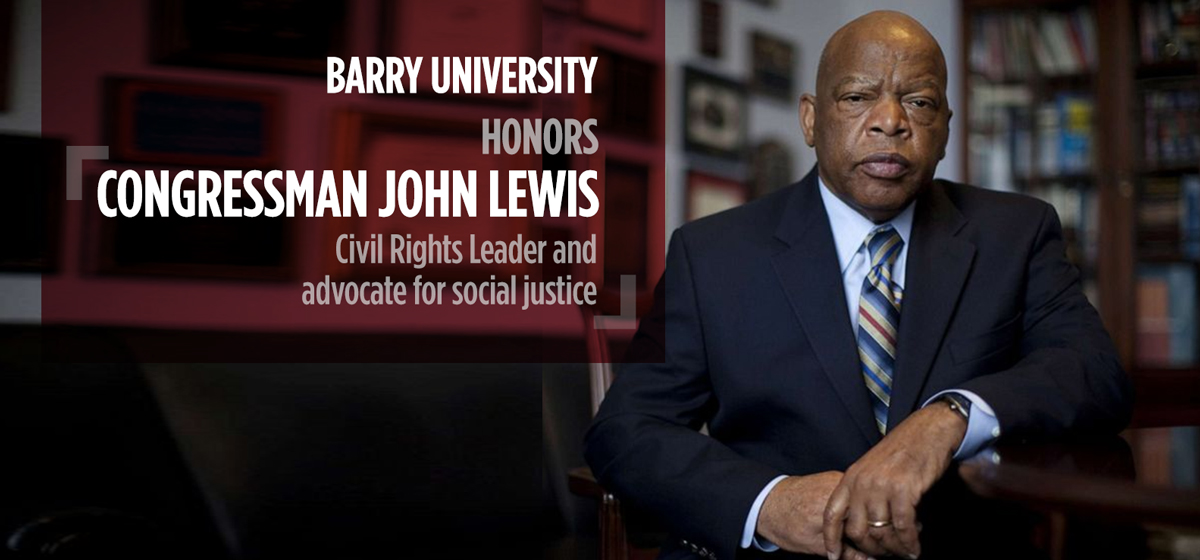An instrumental voice of change and progress in our nation’s history, Representative John Robert Lewis was born, in 1940, into a legalized system of racial oppression. He was the son of Alabama sharecroppers. As a child, he dreamed of becoming a preaching and would recite the Bible verses to the chickens he tended. But coming of age in the Jim Crow South ignited in him a sense of justice that would become the driving force of his life’s work.
When he was 15, as his home state was vowing to defy the Brown v. Board of Education ruling, Lewis first heard Rev. Martin Luther King, Jr., speak. Lewis recalled, “I felt like he was saying, ‘John Lewis, you can do it. You can make a difference in the struggle to defend the dignity of all humankind,’”. By 18, he was in Nashville, attending the American Baptist Theological Seminary and organizing sit-ins at segregated restaurants, movie theaters, and department stores. Guided by the nonviolent teaching of Mohandas Gandhi, he helped found the Student Nonviolent Coordinating Committee, which elevated civil disobedience as protest to a national scale.
Lewis was gassed, beaten, and jailed in the course of his peaceful protests for Civil Rights. He was one of the 13 Freedom Riders, which were subjected to racist attacks organized by the KKK. At 23, he was among the “Big Six” Civil Rights leaders who organized the March on Washington, the event that drew 200,000 peaceful protesters. At 25, while marching across the Edmund Pettus Bridge, in Selma, Al., he was attacked by white police officers. An image of Lewis, unarmed and on his knees as an officer raises a billy club to strike him, remains indelible in the minds of many Americans. On that day, “Bloody Sunday,” Lewis sustained a fractured skull.
Lewis moved to Atlanta, the city that would remain his lifelong home, in 1963. Throughout his 20s and 30s, he continued working for social justice and eventually turned his attention to politics. He won a seat on Atlanta’s City Council, in 1981. Five years later, he was elected to the U.S. House of Representatives. Noting his dedication to morality and liberal ideals, his Democratic colleagues began referring to him as “the conscience of the congress.”
During his long tenure in service to the American people, Rep. Lewis never stopped defending the dignity of humankind. In 2011, he received the Presidential Medal of Freedom from President Barack Obama, who said: “Generations from now, when parents teach their children what is meant by courage, the story of John Lewis will come to mind.” In 2016, at age 76, he led a sit-in on the House floor to compel the GOP toward gun control in the wake of Orlando’s Pulse Nightclub shooting. That same year, he won the National Book Award for the third installment of his graphic novel series, “March,” about the Civil Rights movement.
Lewis announced his diagnosis of stage-IV pancreatic cancer late last year, saying, “I’ve been in some kind of fight – for freedom, equality, basic human rights – for nearly my entire life. I have never faced a fight quite like this one.” He died on July 17, 2020.
We remember and honor Representative John Lewis, whose courage, generosity, and determination changed the world for many.

